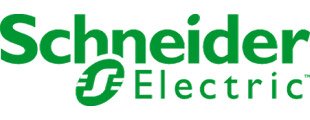
+27 (0)11 0461900
Private Bag X139 Halfway House 1685

How F&B industrial automation and UTS feed into each other
By: Vikash Rampathi - Segment Marketing Lead at Schneider Electric
“Automation has been adopted in manufacturing plants for the last 50 years, and it is increasing day by day. The food industry has become one of the fastest-growing segments of plant automation and is growing tremendously as one of the major sectors contributing to GDP”, notes Mordor Intelligence’s report: Food Automation Market Size & Share Analysis - Growth Trends & Forecasts (2024 - 2029)
According to Mordor Intelligence, as the demand for processed goods increases, food manufacturers must implement automation to improve the processing rate to meet consumers’ demands.
Furthermore, the rapid development of technology, dynamic changes in consumers' preferences, and regulatory bodies have boosted the need for food quality and safety. This has resulted in the growing adoption of automated systems in the food industry.
Similarly in the beverage industry, according to the research group, has been among the leading adopters of automation and robotic solutions, enabling manufacturers to combine slow batch production with high-speed filling and other packaging operations.
The above makes a solid case for industrial automation in the Food and Beverage (F&B) industry, offering benefits that can catapult companies into an era where they can readily adapt to diverse requirements, time to market and importantly offer accountability in an increasingly sophisticated marketplace.
Indeed, industrial automation offers precision and consistency, increased productivity, food safety and hygiene, traceability and compliance, cost savings, quality control and supply chain optimisation.
It is a compelling offering which re-emphasises why industrial automation plays such an important role in the F&B industry’s road to a more resilient, agile, and sustainable future.
Unified Technology Solutions
Industrial automation also forms an important part of establishing a F&B environment optimised by unified technology solutions (UTS). In essence, industrial automation is a subset of UTS, contributing to the overall goal of creating interconnected, efficient, and adaptable F&B systems. UTS provide benefits such as:
- Sustainability enhancement - it consolidates resources, optimising energy usage and waste management, thus aligning with the industry's sustainability goals and regulatory requirements.
- Operational efficiency - a singular platform reduces complexity and enhances operational efficiency, enabling F&B manufacturers to respond swiftly to market demands while ensuring product quality and safety.
- Compliance and traceability – it provides robust traceability features, enabling seamless compliance with food safety regulations and quality standards, while also enhancing product traceability throughout the supply chain.
- Agility and innovation - leveraging modular architectures and standardised protocols, these solutions facilitate rapid adaptation to evolving market trends and consumer preferences, fostering innovation in product development and manufacturing processes.
Schneider Electric is one of the leading providers of industrial automation and UTS to the F&B industry. Our EcoStruxure Automation Expert IoT platform for example integrates automation, data analytics, and IoT to create a cohesive ecosystem for industrial processes.





